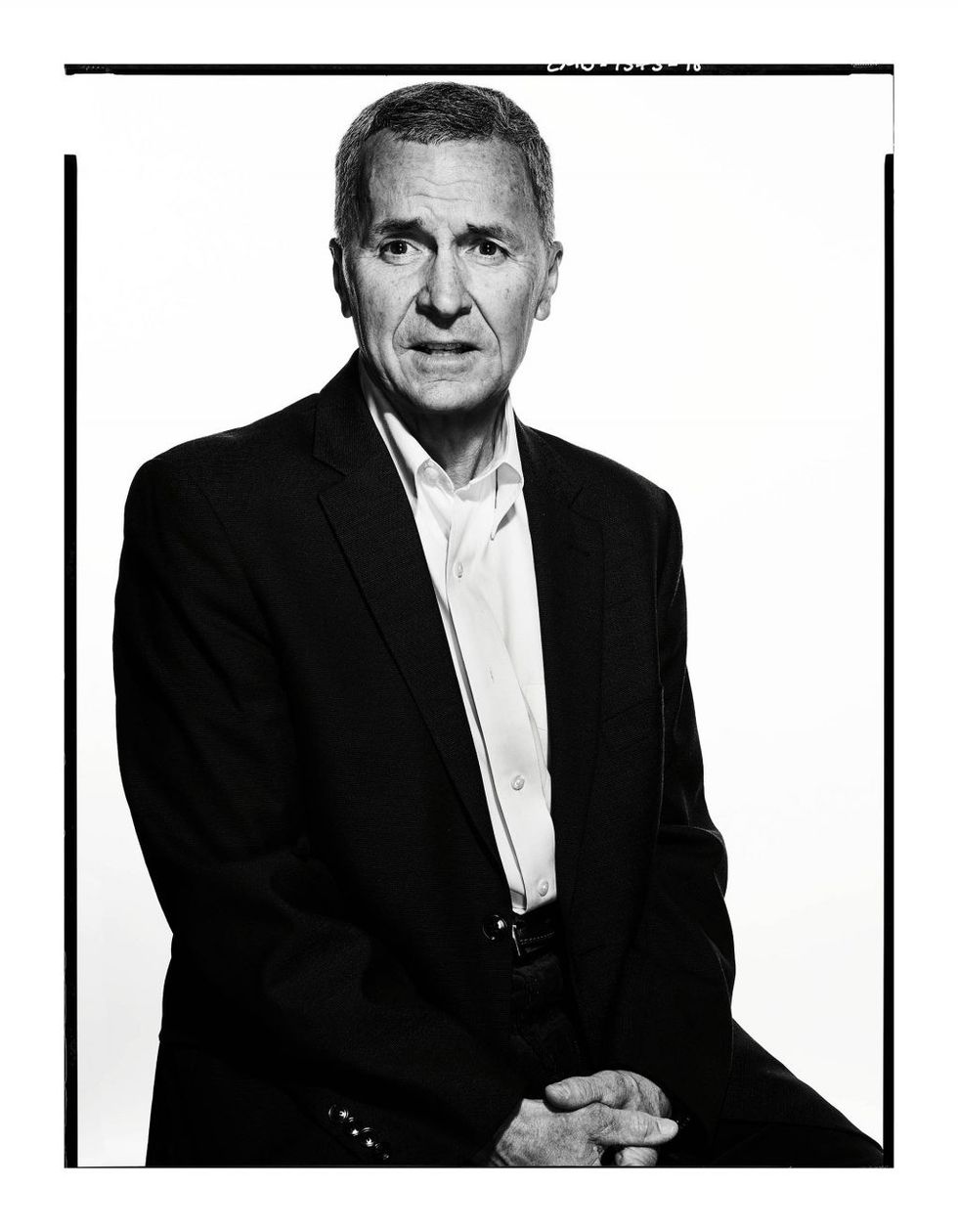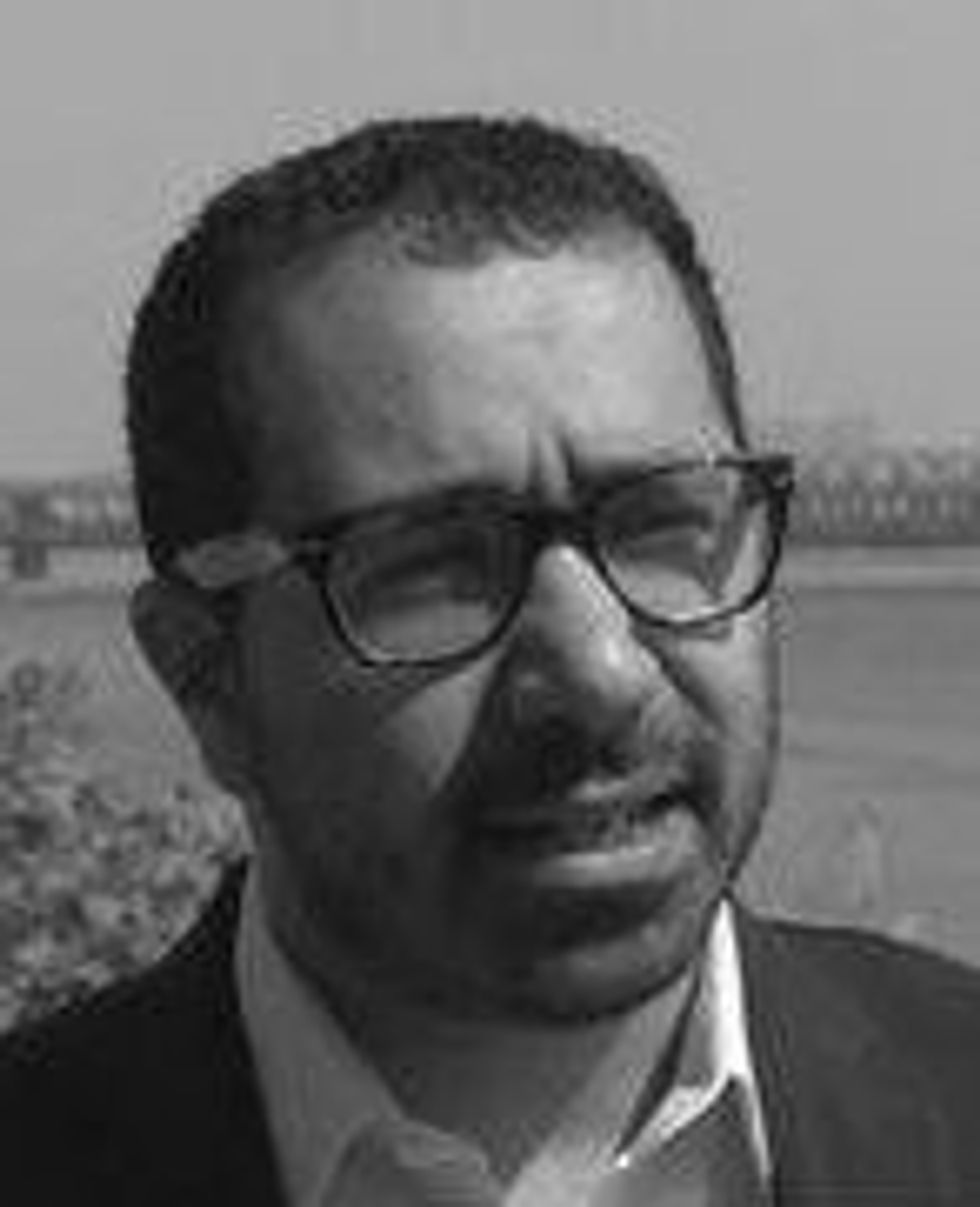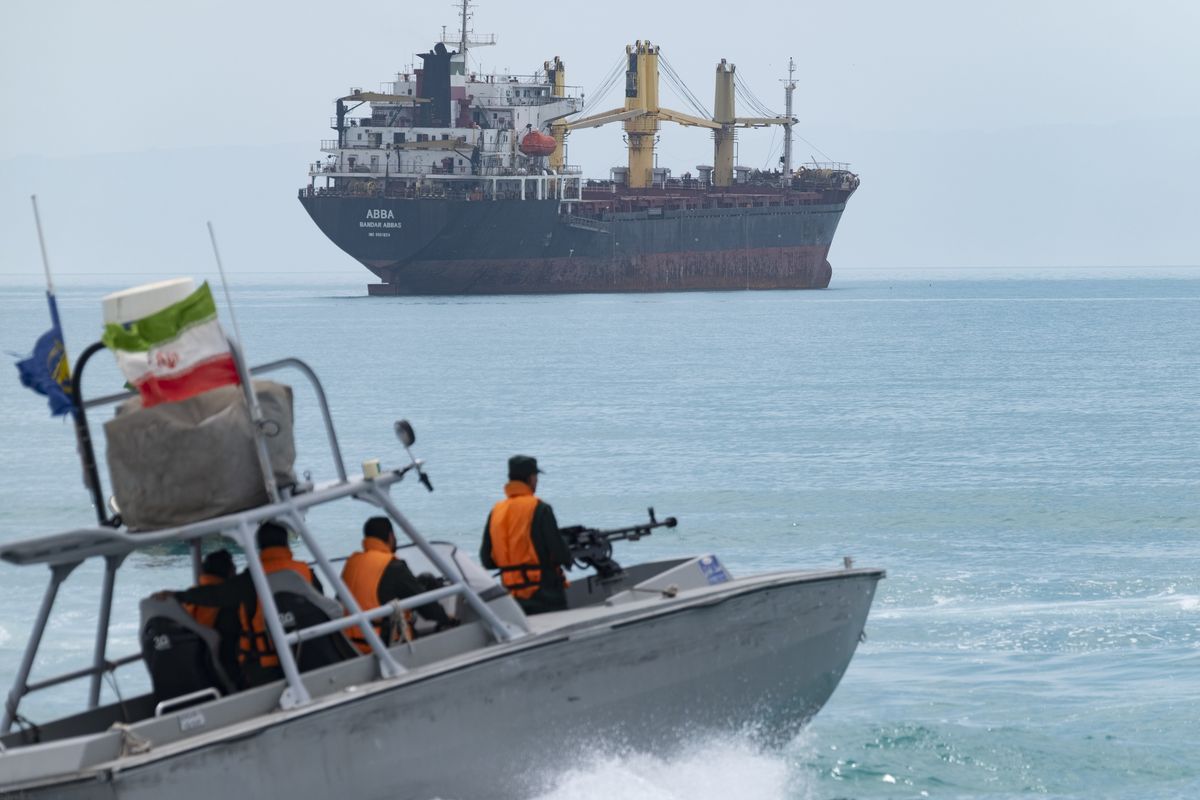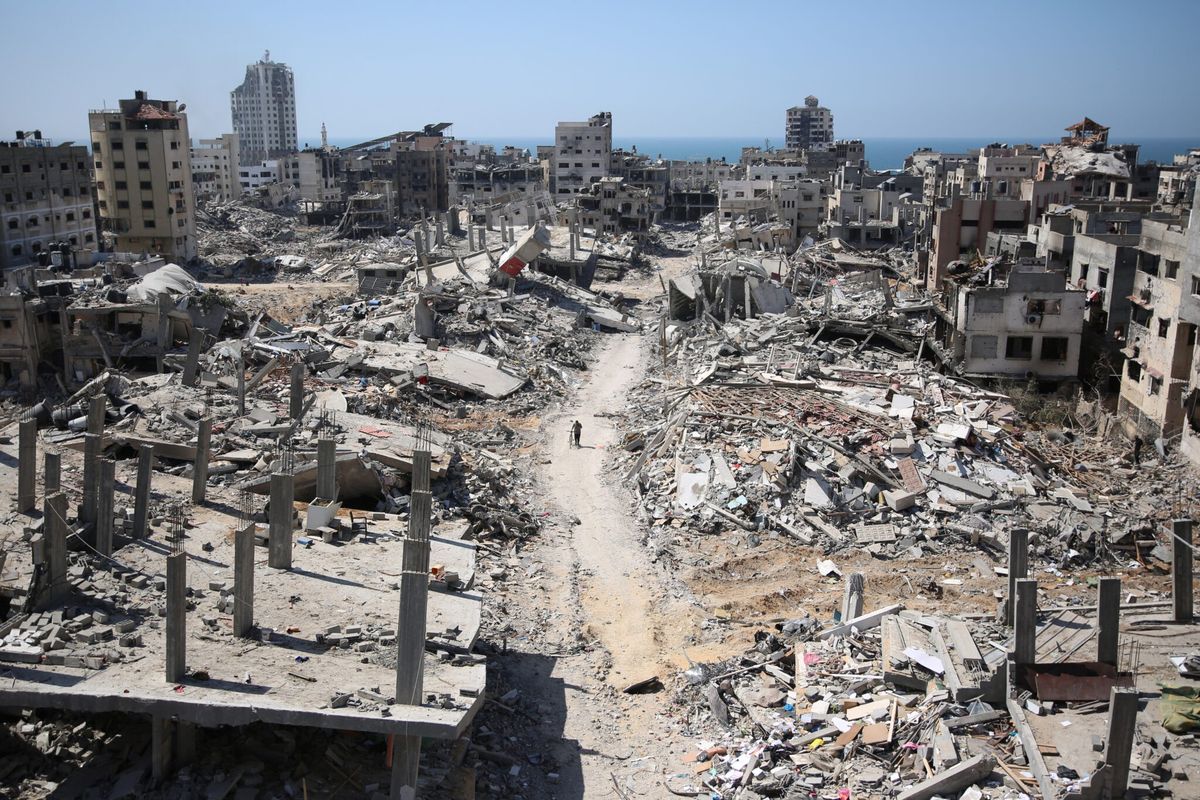Bottom Line: Relations between Egypt and Israel have often been referred to as a “cold peace,” but the emergence of mutual security threats over the past few years has facilitated a growing partnership between the former enemies. Specifically, Egypt and Israel have expanded their cooperation on the security front to combat the threat posed by ISIS-Sinai Province and other militants operating in the Sinai Peninsula. And with Egyptian President Abdel Fatah el-Sisi expected to emerge victorious in the country’s upcoming presidential elections later this month, it appears that the increased security cooperation between Egypt and Israel will continue to trend upwards in the short term.
Background: Egypt and Israel have fought three wars – the Suez Crisis in 1956, the Six Day War in 1967, and the Yom Kippur War in 1973 – before finally reaching a peace accord in 1979.
- Former Egyptian President Anwar Sadat and former Israeli prime minister Menachem Begin signed a peace treaty in September 1979 at Camp David. Since then, the two countries have gradually enhanced security coordination and intelligence sharing to combat regional threats facing both nations.
- Egypt and Israel have cooperated on several security fronts in recent years, including the imposition of a joint blockade against the Hamas-controlled Gaza strip. In addition, Egypt has often closed off the Rafah border crossing, a key supply line into the Gaza strip, due to Hamas’ transport of military supplies and other materials used to facilitate attacks against Israel through the crossing. However, in November, security of the Rafah crossing was transferred to the Palestinian Authority (PA) pursuant to a reconciliation agreement between Hamas and the PA, and Egypt has subsequently opened the crossing several times during the past few months.
David Schenker, former Levant Country Director, Office of the Secretary of Defense
“For decades, the peace between Israel and Egypt has been described as ‘cold. Since the 2013 coup that deposed Muslim Brotherhood leader Mohammed Morsi from the presidency and replaced him with erstwhile General Abdel Fattah el-Sisi, however, the dynamic – at least at the official level – has changed. Cooperation on the Sinai has largely driven the improvement in relations.”
Issue: ISIS-Sinai Province represents an enduring threat to both Egypt and Israel as the group frequently orchestrates attacks against Egypt security personnel in the Sinai and has used its safe havens in the Sinai to fire rockets into Israel on several occasions. The group has gained traction in the Sinai Peninsula largely due to Egyptian government’s failure to provide its citizens there with adequate resources, social services or employment opportunities that would improve their quality of life, leading many in the area to lend support to insurgent groups as a means of protest.
- Originally known as Ansar Beit al-Maqdis, ISIS’ Sinai branch has been active in the Peninsula since 2011. The group pledged allegiance to ISIS leader Abu Bakr al-Baghdadi in November 2014, assuming the name ISIS-Sinai Province. The group has been led by Abu Usama al-Masri, a State Department Specially Designated Global Terrorist, since August 2016.
- ISIS Sinai Province shocked counterterrorism experts with its technical prowess in October 2015, after claiming responsibility for the downing of a Russian passenger plane, Metrojet Flight 9268, killing all 224 people on board. Over the last few years, Sinai Province has frequently attacked Egyptian military and security forces deployed in the Sinai and has even managed to strike in Egypt’s heartland. Last April, the group bombed Coptic churches in Alexandria and Tanta on Palm Sunday, killing 47 people and injuring more than 100 others. On November 24, 2017, gunmen launched an attack against the Al Rawdah mosque in the town of Bir al Abed in northern Sinai. That attack killed at least 305 people, making it the deadliest terrorist attack in Egypt's modern history
- With ISIS losing approximately 98 percent of the territory it once controlled in Syria and Iraq, fleeing militants may seek refuge in the Sinai, and the group’s leaders may look to further prop up its Sinai branch by sending additional fighters and weapons into the territory. Estimates have put Sinai Province’s membership at between 1,000-1,500 members.
- ISIS-Sinai Province has used its safe havens in the Peninsula to launch rockets towards Israel. In February 2017, the group claimed to have shot four rockets at the southern Israeli city of Eilat, and in October 2017, the group announced it had sent two towards the southern Israeli town of Eshkol.
- “ISIS-Sinai continues to conduct daily attacks against the Egyptian Armed Forces (EAF) and security services, causing hundreds of casualties, while other extremist organizations have carried out attacks on the mainland,” said General Joseph Votel, the Commander of U.S. Central Command at a hearing before the House Armed Services Committee last week. “The United States commitment to continuing to support Egypt in this fight against terrorism, in bringing security for the Egyptian people, is steadfast.”
Rob Richer, former Chief of the Middle East, CIA
“In terms of the current threat level in the Sinai, there is not a week that goes by where there is not some incident where policemen or soldiers are killed, a bus is hijacked or something is happening. I would say that the threshold there is significant. On a scale of one to five, it’s a four, basically saying that if you go into the Sinai, you go in there at your own risk.”
Response: Collaboration between Egypt and Israel has centered on security and intelligence sharing, as both countries aim to clamp down on the Islamic State (ISIS) and other militant groups operating in the Sinai Peninsula. As part of the joint effort to combat militants in the Sinai, Israel granted Egypt permission to increase its troop presences in the Sinai Peninsula beyond the limits established in the 1979 peace agreement – another sign of the growing cooperation between the two countries.
- According to the 1979 peace treaty, the Sinai was designated as a demilitarized zone, and both countries agreed that the Multinational Force & Observers (MFO), an independent organization established by the Egypt, Israel and the U.S., would be charged with peacekeeping responsibilities in the area. Each country must approve the deployment of additional military forces on either side of the border, which Israel has done several times in the last few years.
- Following the attack at the Sufi mosque in April, Sisi ordered his military chief to secure the Sinai in three months, and gave permission to use “all brute force necessary.” Last month, Egypt launched a full scale operation in the Sinai, closing several schools until further notice, and significantly ramped up its military presence there to 88 battalions, which amounts to 42,630 soldiers and 800 vehicles, according to Maj. General Mohammed el-Shahat, the head of Egypt’s armed forces.
- A recent New York Times Article asserted that “for more than two years, unmarked Israeli drones, helicopters and jets have carried out a covert air campaign, conducting more than 100 airstrikes inside Egypt, frequently more than once a week — and all with the approval of President Abdel Fattah el-Sisi.” It was also reported that American officials believe that Israel’s assistance has helped Egypt “gain an upper hand against the militants.” However, Egyptian officials publicly denied such claims.
- In October, ISIS’s official news agency, Amaq, also commented on Israel’s involvement in the Sinai, claiming that “While dodging a Jewish aircraft flying over the Wilaya (Sinai Peninsula), the Mujahedin fired 2 Grad rockets at the Jewish Council (the city of Eshkol in southern Israel).”
Rob Richer, former Chief of the Middle East, CIA
“It’s public knowledge that the Israelis and Egyptians have a strong relationship in terms of sharing intelligence and security related information as well as military cooperation. For years, the two parties have worked together, particularly in the border area to destroy tunnels, share information, and take out threats. An al Qaida and ISIS presence in the Sinai not only threatens Egypt but also Israel. So, Israel and Egypt are working together just like they’ve worked with many countries in the Middle East including Saudi Arabia, Jordan, and others, but they are not highlighting it mainly due to operational security. When you publically start talking about who you are cooperating with, then even more operational details come out and you end up giving away some of the things that you are doing. So operational security is the key word why no one is taking credit for these types of operations.”
Perry Cammack, fellow, Middle East Program, Carnegie Endowment for International Peace
“Since the military coup…there has been a sense that the relationship is back on track. Notwithstanding concerns about the growing threat of the Islamic State in the Sinai and Sisi’s increasingly authoritarian tendencies, it remains the case that the Israeli and the Egyptian security establishments have similar worldviews; they share relatively similar threat assessments; and they see themselves facing some of the same list of enemies.”
Looking Ahead: Sisi’s impending presidential victory will likely pave the way for continued and possibly even enhanced Egyptian-Israeli defense cooperation. However, until the Egyptian government concentrates on amending critical economic and developmental shortcomings in the Sinai, it is likely that Sinai Province will represent an enduring threat in the Peninsula.
Timothy Kaldas, Professor, Nile University in Cairo
“Repression alone will not deliver sustainable security to Egypt. Additionally, much more needs to be done to help develop the Sinai Peninsula and address the population’s longstanding isolation from the state and its services. Moreover, much needs to be done to instill a sense among the population that the security apparatus is subject to the rule of law.”
Bennett Seftel is director of analysis at The Cipher Brief.

















